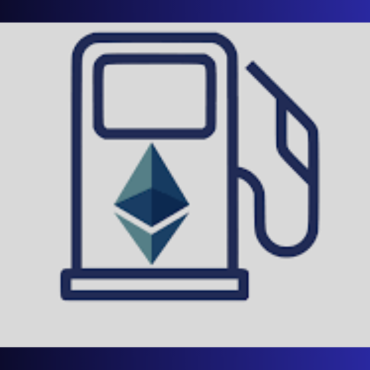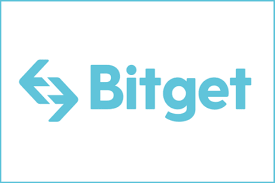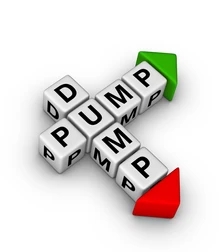Blockchain use scenarios keep changing worldwide, and understanding the underlying technologies is crucial to navigating the cryptocurrency market. It’s becoming increasingly important to understand what a decentralized exchange (DEX) is and how it works in the crypto sphere. DEXs provide users with an invaluable service: the ability to independently trade cryptocurrencies without relying on centralized exchanges or third-party brokers.
What Is Crypto Exchange?
A crypto exchange is a platform for buying and selling digital currencies like Bitcoin, Ethereum, and many others. A crypto exchange works similarly to a traditional stock exchange or foreign currency exchange.
There are two main types of exchanges, centralized exchanges and decentralized exchanges. Let’s examine these two closely.
What Is a Centralized Exchange?
The classic approach to cryptocurrency exchanges comes from centralized exchanges (CEXs). These exchanges serve as intermediaries, keeping users’ funds safe and carrying out trades for them.
DEX (Decentralized Exchange)?
DEXs eliminate the need for a third-party to hold user funds or facilitate trading by utilizing smart contracts on blockchain networks. Smart contracts are computer protocols that execute themselves when predetermined conditions are met and are used to facilitate financial transactions on decentralized exchanges (DEXs) over a blockchain network.
DEXs are typically less regulated than centralized exchanges and offer features such as atomic swaps and trustless transactions.
Types of Decentralized Exchanges
Order Book DEXs
Order book-based decentralized exchanges work similarly to those utilized in traditional exchanges for pairing up buyers and sellers. There are two kinds of DEXs that employ an order book: on-chain and off-chain.
On-chain order book
On-chain order books verify transactions and record this data on the blockchain via a network of nodes and crypto miners. Such order books are identical to those found in centralized crypto exchanges, with the exception that transactions are not confirmed by a third party. These order books are thought to be more transparent than off-chain order books because they are available for everyone to see on the blockchain.
On-chain DEXs require high throughput and low execution cost, so building one is only possible in networks with high bandwidth and low commissions. That explains why there is no on-chain order book DEXs on Ethereum.
The most popular DEXs that fall under this category are Serum and Tonic DEX, which run on Solana and NEAR blockchain protocols, respectively.
An Off-chain order book
Off-chain DEXs use a third-party server for matching compatible orders and maintaining a record of trades. Off-chain order books often offer lower fees than on-chain order book DEXs, but they don’t, however, have the same degree of decentralization as rival DEXs.
dYdX and 0x are two of the most popular off-chain order book DEXs.
Automated Market Makers (AMMs)
Automated market makers (AMMs) are revolutionizing the world of decentralized exchanges (DEXs). By eliminating the need for an order book, AMMs allow anyone in the world to instantly access liquidity in a secure and permission-less way. This type of DEX uses tokens stored in a liquidity pool and a smart contract technology to calculate prices between assets based on their proportions, making swaps readily accessible at any time. In short, automated market makers are transforming the cryptocurrency landscape with an easy-to-use money robot that always has pricing available for token holders.
This type of protocol has become immensely popular since Uniswap’s launch in 2018 and has even spawned many copycat projects. Among these AMMs are Curve, SushiSwap, PancakeSwap and AirSwap (peer-to-peer marketplace), all offering features similar to what Uniswap does best: low fees, permissionless trading, and protection from counterparty risk.
DEX Aggregators
The third most widely spread category – DEX aggregators – are platforms that allow users to access multiple DEX s from a single interface. This makes it easier for users to compare prices and find the best deals.
Some DEXs (e.g Changelly DeFi Swap, 0x and KyberNetwork) actually combine these three approaches within one platform.
Despite differences in operational structure, all decentralized exchanges offer users with anonymity and privacy that may be lacking from more traditional exchanges. Let’s take a closer look at DEXs’ advantages list.
What Are the Benefits of Decentralized Exchanges?
Decentralized exchanges are built on blockchain technology and use smart contracts to facilitate trades between users. Also, This allows more secure transactions, as well as greater privacy and anonymity. Additionally, users can trade freely without fear of their trades being blocked or reversed.
Reduced security risks
DEXs offer increased security compared to centralized exchanges, as they do not hold user funds. Instead, users control their private keys and trade directly with other users.
Transparency
Transparency is an important aspect of decentralized exchanges. All trades are visible on the blockchain, which helps to ensure that all transactions are fair and secure, as well as providing users with greater peace of mind.
Custody
Since DEXs are non-custodial, traders don’t have to give up custody of their private keys in order to conduct transactions. Instead, DEXs engage with externally stored wallets, and trades via self-executive smart contracts.
Trustless Transactions
Trustless transactions are made possible by DEXs’ use of smart contracts to perform trades and record them to the blockchain. Furthermore, since DEXs do not deposit your assets, hackers are less likely to target them.
Token availability
DEXs offer access to a wider range of token listings compared to centralized exchanges, which are often selective about the tokens they list.
Anonymity & Privacy: no KYC/AML
Many DEXs do not require KYC/AML checks, allowing for anonymous and private trading.
Reduced Counterparty Risks
By removing the need for a trusted third party to hold user funds or execute trades, DEXs reduce counterparty risk.
Decentralization
Decentralization is a key feature of decentralized exchanges. By removing the need for a central authority or intermediary, DEXs allow users to trade directly with each other without having to go through a third-party service. This helps to ensure that all trades are secure and transparent, as well as providing users with greater privacy and anonymity. Additionally, decentralization makes it more difficult for malicious actors to manipulate the market or interfere with trades.
Resistance to Censorship
As DEXs do not rely on a central authority or intermediary, they are resistant to censorship and less likely to be impacted by changes in regulations.







